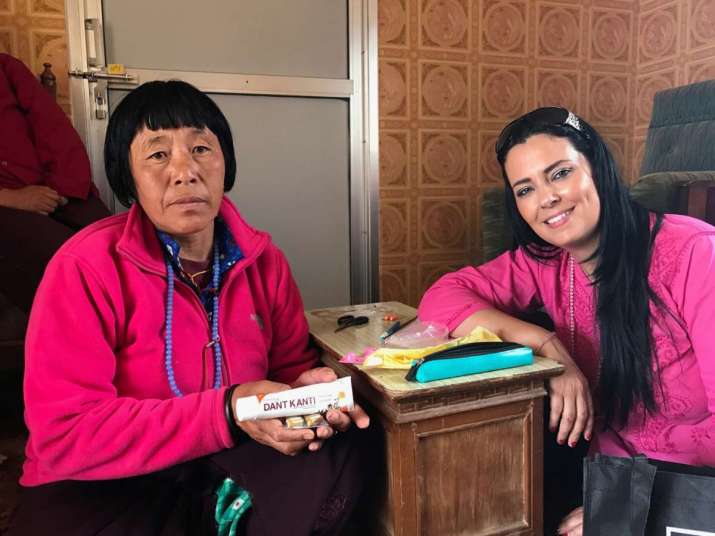Sónia Gomes has a PhD in Marketing and Communication and is the founder, CEO and owner of Spaso Zen Wellness Centers in Portugal. Her interests lie in female empowerment, Tibetan Medicine, health and education, gender discrimination and the role of women in Tantric Buddhism. She has been an international advisor in a Nepalese NGO called Lotus Heart since February 2018 and in a Nepalese charity trust, Nepal Buddhist Education and Meditation Centre, since April 2018.
The question about education for human development is not a matter of adding a new discipline to overloaded school programs, but to reorganize the teachings in accordance with an viewpoint that connects men and women to the environment, using a holistic approach to science plus the social sciences. This pedagogy could be made available to all citizens, with a view to education that extends throughout life.
The demand for worldwide solidarity presupposes, on the other hand, that everyone goes beyond the tendency to close in on themselves, so as to open their hearts to a deep understanding of others, based on a respect for diversity and universal compassion.
Planetary interdependence and globalization are the most important phenomena that we are becoming conscious of in our time. This transformation of consciousness is already in progress and will have immense consequences for the 21st century. They call for a joint reflection – far beyond the fields of education and culture – on the role and structures of international organizations themselves.
One of the main roles reserved for education consists in endowing humanity with the capacity to master its own development. It must, in fact, cause each person to take their destiny into their own hands and contribute to the progress of the society in which they live, basing their development on the participation and responsibility of individuals and communities.
Education serves not only to provide skilled people for the world economy. Yet the human being is so much more than an economic agent. Education needs to account for the entire person’s nourishment.
Developing one’s talents and aptitudes correspond, at the same time, to the fundamentally humanist mission of education, to the demand for equity that must guide any educational policy and the real needs of holistic development, respectful of the human and natural environments, and the diversity of traditions and cultures. Furthermore, if it is true that lifelong learning is the essential ideal of our day that we aspire to, it must be included, in addition to the simple objective of employability, among broader conceptions of education throughout life, conceived as an essential stepping stone to the harmonious and continuous development of the individual and society.
Basic education and adult literacy in developing countries: Nepal
For adults, basic education and literacy programs are more attractive if they are associated with the acquisition of skills useful to agriculture, handicrafts or other manual economic activities. Adult education is also an excellent opportunity to address environmental health, feminine hygiene, birth control, and understanding different values and cultures. The use of the media for educational purposes can contribute to making the adult aware of a world that goes beyond the framework of their limited individual experiences, in particular highlighting science and technology. Such things are ubiquitous in the modern world, but which citizens of developing countries still have very limited access.
It is necessary to encourage initiatives by local leaders and we should seek to help improving their managerial skills and technical knowledge, especially in the area of financial control. The role of women’s groups, especially those involving mothers, can be instrumental in ensuring the success and continuity of basic education programs.
One of the forms of community participation is the use or creation of community centres where a wide range of diverse actions can be organized: parental education, education for social development, such as primary health care or family planning, teaching how to improve economic capacities, through both technical and financial contributions, and so on.
We must be prepared to be Buddhists for the 21st century. This means having a more complete knowledge of modern education, science, and infrastructure, while at the same time maintaining the full conviction of the Buddha’s teachings on infinite altruism, bodhicitta and a worldview based on interdependence and dependent origination (pratityasamutpada).

